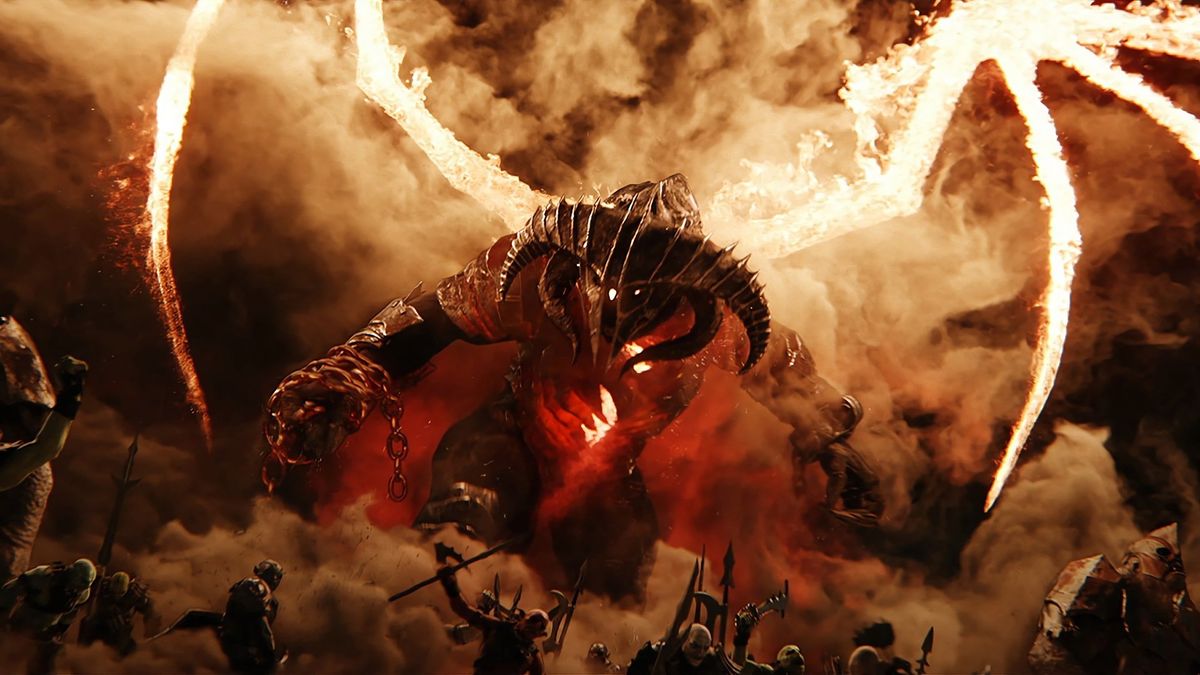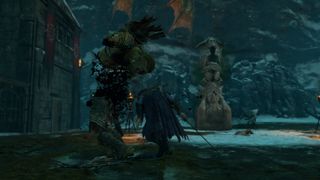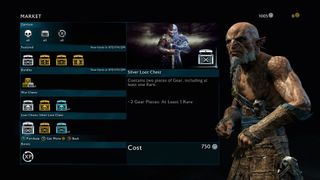It's too early to thank Middle-earth: Shadow of War for its microtransaction U-turn
Well, well, well. First EA stripped progression-based microtransactions from Battlefront II, now Shadow of War is following suit. But is this a hollow gesture? Too little too late?

While EA's Star Wars Battlefront II took the brunt of the criticism for last year's huge microtransaction backlash, many missed that it was Middle-earth: Shadow of War that primed discussions revolving around their encroachment on "AAA" console games.
Shadow of War, a follow up to 2014's excellent Shadow of Mordor looked set to be a sure-fire hit, building on the great systems that made its predecessor so engaging. Yet, Warner Bros and Monolith undermined the game's core systems (by its own admission), allowing gamers to circumvent gameplay by offering extra cash.
Six months on, and several far superior open world games later, Shadow of War's microtransactions are going byebye, but I can't help but feel like this is a hollow gesture – too little too late, for a game that clearly didn't achieve its full potential. If nothing else, Shadow of War will serve as a cautionary tale to greedy publishers.
State of play

Here's the full breakdown from Monolith, developers on Shadow of War:
The core promise of the Nemesis System is the ability to build relationships with your personal allies and enemies in a dynamic open world. While purchasing Orcs in the Market is more immediate and provides additional player options, we have come to realize that providing this choice risked undermining the heart of our game... It allows you to miss out on the awesome player stories you would have otherwise created, and it compromises those same stories...Simply being aware that they are available for purchase reduces the immersion in the world and takes away from the challenge of building your personal army and your fortresses. In order to fully restore the core promise... The ability to purchase Gold will permanently cease on May 8, 2018. The permanent removal of Gold, War Chests and the Market will take place on July 17, 2018.
For those who don't know, the Nemesis System is what elevates Shadow of War from being a weak Assassin's Creed clone with a Lord of the Rings skin to something greater. The Nemesis system features a virtually limitless number of procedurally-generated orc and troll enemies, complete with unique characteristics, personalities, and voice work. These unique bosses could show up at any time, creating dynamic scenarios unique to your playthrough. If they defeated you, they would get stronger and stronger, gaining new abilities and quirks. If you defeated them, the next time they showed up, they'd be missing the limbs you chopped off, for example, and perhaps gain new abilities as a result.

The Nemesis System is fairly unique to the "Shadow" Lord of the Rings games from Monolith, and was a truly delightful engine that really gave the games a dynamic edge, without sacrificing the cinematic feel Shadow of War and Mordor were going for. Sadly, Monolith and Warner Bros threw it all away by allowing you to buy your way through the system.
Shadow of cash flow

Instead of engaging with the Nemesis system directly, creating orc captains, and subsequently enslaving them into your army, you could send Warner Bros extra cash to buy your way through the system.
Get the Windows Central Newsletter
All the latest news, reviews, and guides for Windows and Xbox diehards.
Similarly to Battlefront II, Warner Brothers had set up a way for players with more money to gain progress faster. At least in Shadow of War, there was no real competitive multiplayer element, creating advantages for richer players over poorer ones. This fact allowed Shadow of War to avoid mainstream backlash, since it was a case of "well, don't buy them if you don't want to." The microtransactions undermined Shadow of War in different ways.

Towards the end of Shadow of War, to achieve the game's "true" ending required a massive grind, largely free of the game's cinematic story telling. Amassing a large orc army, made up of captains from the game's Nemesis system, took center stage. Whether true or not, the impression that this part of the game was artificially stretched out to encourage microtransactions to skip it was hard to ignore.
I, like many people I've spoken to, simply opted not to engage with this late-game grindfest. The sense that Warner Bros was punishing players for not giving them extra cash, on top of the game's premium price tag, just left a sour taste.
I don't believe you, Monolith

The fact Monolith is removing microtransactions now, several months after the game's launch, rings as a hollow gesture. Perhaps it's more like the cost of maintaining the servers that provide these systems isn't worth the amount of people still playing the game, as some have suggested. That's pure speculation of course, but the game is tracking around 2000 players daily on Steam, which isn't a huge amount.
It just seems disingenuous that it took them half a year to arrive at the same conclusion.
Considering most reviews, both from critics and users, bashed the game specifically over this issue, echoing Monolith's own statements above, it just seems disingenuous that it took them over half a year to arrive at the same conclusion.
The whole debacle over microtransactions in Shadow of War, Battlefront II, and other titles seems to have turned the industry at large off from gameplay-circumventing payments. Far Cry 5 has microtransactions, but they're primarily for weapon skins. Monster Hunter: World has them for emotes and gestures. Sea of Thieves will also have them, but they'll be cosmetic pets. None of these games have suffered a backlash, because none of them impede players' in-game power for not spending.
I'm not naïve enough to think publishers will give up on the upsell — there's simply too much money to be made. But it seems that gamers have managed to push back against more egregious implementation of these types of systems, at least for now. Considering how long it took EA and Warner Brothers to pivot, I'd say it's still too soon for gamers to let their guard down, lest it become the norm for publishers to front-load their games with dumb micropayments then apologetically climb down months later. These games shouldn't have had them in the first place.

Jez Corden is the Executive Editor at Windows Central, focusing primarily on all things Xbox and gaming. Jez is known for breaking exclusive news and analysis as relates to the Microsoft ecosystem while being powered by tea. Follow on Twitter (X) and Threads, and listen to his XB2 Podcast, all about, you guessed it, Xbox!